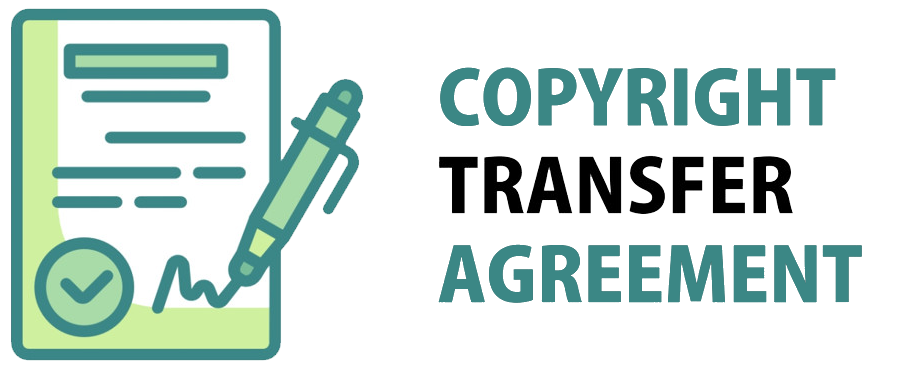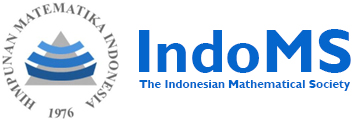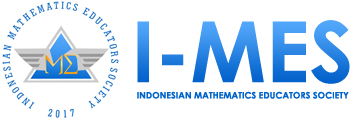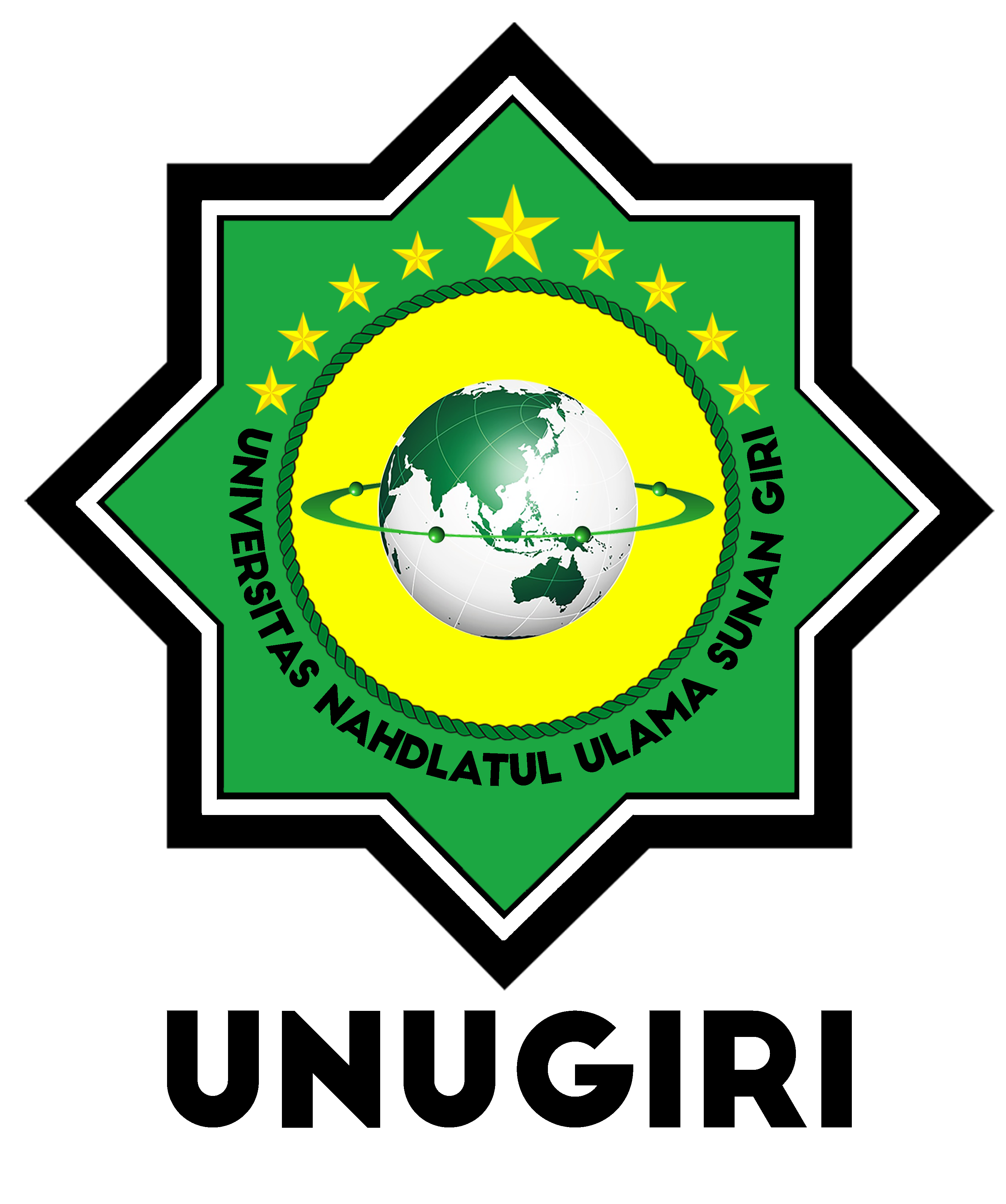Development of Ethnomathematics-Based Student Worksheets to Improve the Understanding of Concepts for Junior High School Grade IX Students

DOI:
https://doi.org/10.32665/james.v8i2.5633Keywords:
Ethnomathematics, Reflection, Student Worksheet, TranslationAbstract
Mathematics learning requires innovative and contextual teaching materials so that students can more easily understand concepts. However, the availability of teaching materials is still limited in schools. Often teachers only use package books as the only teaching materials used. This research aims to develop ethnomathematics-based Student Worksheets by integrating the Batak Gorga motif in the translation and reflection materials of grade IX of junior high school. The research model used is Research and Development (R&D) by adapting Borg and Gall's steps to the final product revision stage. The research instruments include expert validation, teacher and student response questionnaires, and concept understanding tests conducted through pre-tests and post-tests. The results of the study show that the average assessment from material and media experts is in the category of very valid. The responses of teachers and students gave an average assessment with a very practical category. In addition, the average results of the students' concept understanding test showed an increase from pre-test to post-test, so that the effectiveness of Student Worksheets was in the medium category. The integration of Gorga Batak motifs in the Student Worksheet is able to help students understand the concepts of translation and reflection more easily. This Student Worksheet can also be used by teachers as teaching materials based on local culture to increase the effectiveness of mathematics learning.
References
Adrillian, H., Rahmawati, N. D., & Sugiyono, E. (2024). Pengembangan E-LKPD Berbantuan Liveworksheets Terhadap Kemampuan Numerasi Peserta Didik Jenjang SMK Pada Materi Trigonometri Kelas X. Jurnal Riset Dan Inovasi Pembelajaran, 4(2), 1079–1093. https://doi.org/10.51574/jrip.v4i2.1815
Ainiyah, N., & Loviana, S. (2024). Pengembangan Lembar Kerja Peserta Didik (Lkpd) Berbasis Etnomatematika Pada Materi Transformasi. Al-’Adad: Jurnal Tadris Matematika, 3(2), 243–256. https://doi.org/10.24260/add.v3i2.3530
Anggraini, R. D., Murni, A., & Gunawan, T. (2022). Pengembangan Perangkat Pembelajaran Menggunakan Problem Based Learning Pada Materi SPLTV Untuk Memfasilitasi Kemampuan Pemecahan Masalah Matematis. Jurnal Cendekia: Jurnal Pendidikan Matematika, 06(03), 3136–3147.
Azmi, R. D., & Ummah, S. K. (2024). Penyusunan LKPD Interaktif Berbantuan Liveworksheets Bagi Guru SMP. JAPI (Jurnal Akses Pengabdian Indonesia), 9(1), 67–74. https://doi.org/10.33366/japi.v9i1.5728
Bai, L., Yang, B., & Yuan, S. (2023). Evaluating of Education Effects of Online Learning for Local University Students in China: A Case Study. Sustainability (Switzerland), 15(13). https://doi.org/10.3390/su15139860
Bustan, A. W., Salmin, M., & Talib, T. (2022). Transformasi Geometri Pada Batik Malefo (Geometric Transformation of Malefo Batik). Jupitek, 4(2), 87–94.
Dhena, G. V. A., Kua, M. Y., Dolo, F. X., & Ngurah Laba Laksana, D. (2024). Pengembangan Lembar Kerja Peserta Didik (Lkpd) Ipas Berbasis Praktikum Sederhana Bagi Siswa Kelas Iv Sd. Jurnal Muara Pendidikan, 9(1), 55–64. https://doi.org/10.52060/mp.v9i1.1908
Ditasona, C. (2018). Ethnomathematics Exploration of the Toba Community: Elements of Geometry Transformation Contained in Gorga (Ornament on Bataks House). IOP Conference Series: Materials Science and Engineering, 335(1), 0–6. https://doi.org/10.1088/1757-899X/335/1/012042
Ditasona, C. (2023). Exploring Ethnomathematics in Batak Toba Carvings for Locally-based Mathematics Teaching Material. Journal of Education Research and Evaluation, 7(3), 399–407. https://doi.org/10.23887/jere.v7i3.66787
Hakim, R. R. Al, Setyowisnu, G. E., & Pangestu, A. (2020). На Главную | База 1 | База 2 | База 3. International Journal of Environmental Research and Public Health, 1(2), 1–10.
Hasibuan, H. A., & Hasanah, R. U. (2022). Etnomatematika: Eksplorasi Transformasi Geometri Ornamen Interior Balairung Istana Maimun Sebagai Sumber Belajar Matematika. Jurnal Cendekia : Jurnal Pendidikan Matematika, 6(2), 1614–1622. https://doi.org/10.31004/cendekia.v6i2.1371
Hindarto, C. R., & Sulistyani, N. (2024). Pengembangan Media Pembelajaran Desmos Classroom Activity untuk Meningkatkan Pemahaman Konsep Transformasi geometri Menggunakan Konteks Grebeg Maulud. 6(1).
Kehi, S., Son, A. L., & Simarmata, J. E. (2022). Studi Etnomatematika: Makna Simbolik dan Konsep Matematika Pada Rumah Adat Hamanas Malaka. Prisma, 11(2), 585. https://doi.org/10.35194/jp.v11i2.2587
Khafida, I. L., & Ismono, I. (2021). Pengembangan Lkpd Inkuiri Berbasis Hands-on & Minds-on Activity Untuk Meningkatkan Hots Pada Materi Laju Reaksi. UNESA Journal of Chemical Education, 10(1), 38–47. https://doi.org/10.26740/ujced.v10n1.p38-47
Kurniawan, E. S., Fatmaryanti, S. D., Pratiwi, U., & Ramadhani, F. N. (2022). Pendampingan Penyusunan Bahan Ajar Digital bagi Guru SMK di Kabupaten Purworejo. E-Dimas: Jurnal Pengabdian Kepada Masyarakat, 13(3), 516–522. https://doi.org/10.26877/e-dimas.v13i3.10840
Lumbantoruan, J. H., & Uly, R. (2022). Description of the Difficulties of Mathematics Education students in Complex Analysis Course. SAINSMAT: Journal of Applied Sciences, Mathematics, and Its Education, 11(1), 1–13. https://doi.org/10.35877/sainsmat716
Luthfi, H., & Rakhmawati, F. (2023). Pengembangan Lembar Kerja Peserta Didik ( LKPD ) Berbasis Etnomatematika pada Materi Bangun Ruang Sisi Lengkung Kelas IX. 07(1), 98–109.
Mahlina, O., Ansori, H., & Suryaningsih, Y. (2022). Pengembangan lembar kerja peserta didik berbasis etnomatematika pasar terapung pada materi aritmatika sosial untuk siswa kelas vii smp. Jurmadikta, 2(November), 1–10. https://doi.org/10.20527/jurmadikta.v2i3.1260
Maulani, I. F., & Zanthy, L. S. M. (2020). Analisis Kesulitan Siswa Dalam Menyelesaikan Soal Materi Transformasi Geometri. Gammath : Jurnal Ilmiah Program Studi Pendidikan Matematika, 5(1), 16–25. https://doi.org/10.32528/gammath.v5i1.3189
Miftah, R., Kustiawati, D., & Ridhoilahi, I. (2025). Development of student worksheets with react strategy to facilitate students ’ mathematical literacy skills in an islamic context. AXIOM: Jurnal Pendidikan Dan Matematika, 14(1), 12–27.
Noviani, D., Amalia, D., & Djamali, M. F. (2021). Eksplorasi Konsep Dilatasi Etnomatematika Pada Batik Tembakau Jember. Prismatika: Jurnal Pendidikan Dan Riset Matematika, 4(1), 56–64. https://doi.org/10.33503/prismatika.v4i1.1441
Nst, M. I., & Batubara, N. K. (2024). the Importance of Ethnomathematics in Education: a Systematic Literature Review. Proceedings of International Conference on Education, 2(1), 552–557. https://doi.org/10.32672/pice.v2i1.1412
Nurmaya, R. (2021). Pengembangan Bahan Ajar Berbasis Etnomatematika Pada Materi Transformasi Geometri. RANGE: Jurnal Pendidikan Matematika, 2(2), 123–129. https://doi.org/10.32938/jpm.v2i2.941
Oktaviara, O. (2024). Lembar Kerja Peserta Didik (Lkpd) Berbasis Project Based Learning Pada Materi Fluida Statis. XII, 85–94. https://doi.org/10.21009/03.1201.pf13
Purwasi, L. A., & Fitriyana, N. (2020). Pengembangan lembar Kerja Peserta Didik (LKPD) Berbasis Higher Order Thingking Skill (HOTS) Pendidikan Matematika STKIP PGRI Lubuklinggau , Indonesia. AKSIOMA: Jurnal Program Studi Pendidikan Matematika, 9(4), 894–908.
Ramadhana, R., & Hadi, A. (2021). Efektivitas Penerapan Model Pembelajaran Berbasis E-Learning Berbantuan LKPD Elektronik Terhadap Hasil Belajar Peserta Didik. Edukatif : Jurnal Ilmu Pendidikan, 4(1), 380–389. https://doi.org/10.31004/edukatif.v4i1.1778
Said, N. (2021). ESL Pre-Service Teachers’ Evaluation of ESL Web Resources. International Journal of Academic Research in Business and Social Sciences, 11(6). https://doi.org/10.6007/ijarbss/v11-i6/10375
Shabira, N., & Andhany, E. (2023). Pengembangan LKPD Berbasis Etnomatematika untuk Meningkatkan Kemampuan Pemecahan masalah Matematis Siswa. Euclid, 10(1), 147–165.
Sugiarti, L., Ningsih, G. P., & Jeramat, E. (2024). Penggunaan alat peraga sederhana untuk meningkatkan keterampilan matematika siswa. 7(2), 84–88.
Sugiyono. (2020). Metode Penelitian Kuantitatif, Kualitatif dan R&D. Bandung: Alfabeta
Sulisawati, D. N., Saputra, Y., & Hidayatin, N. (2023). Differential: Journal on Mathematics Education. Journal on Mathematics Education, 1, 57–67. https://doi.org/10.32502/differential.v2i2.424
Susanti, S. A. (2024). Studi Literatur : Analisis Pentingnya Kemampuan Numerasi dalam Mendukung Pemecahan Masalah Matematis. 2(1), 17–22.
Sutra, S., Mulyono, D., & Mawardi, D. N. (2024). Lembar Kerja Peserta Didik Berbasis Problem Based Learning pada Pembelajaran Matematika. Jurnal Basicedu, 8(4), 2441–2450. https://doi.org/10.31004/basicedu.v8i4.7824
Ugi, S.Pd., M.Pd, L. E. (2021). Eksplorasi Etnomatematika Makna Simbol Pakaian Pernikahan Adat Buton Kajian Semiotik. Indonesian Journal of Educational Science (IJES), 4(1), 91–99. https://doi.org/10.31605/ijes.v4i1.1213
Wismanto, A., Ulumuddin, A., & Murywantobroto. (2024). Urgensi Pendekatan Inovatif dalam Pembelajaran Bahasa dan Sastra Indonesia di Era Vuca: Mengintegrasikan Kearifan Lokal dan Teknologi. Proceedings Series on Social Sciences & Humanities, 20(Pibsi Xlvi), 420–430. https://doi.org/10.30595/pssh.v20i.1431
Downloads
Published
Issue
Section
Categories
License
Copyright (c) 2025 Journal of Mathematics Education and Science

This work is licensed under a Creative Commons Attribution-NonCommercial-ShareAlike 4.0 International License.
Authors who publish with this journal agree to the following terms:
- Authors retain copyright and grant the journal right of first publication with the work simultaneously licensed under a Creative Commons Attribution License that allows others to share the work with an acknowledgment of the work's authorship and initial publication in this journal.
- Authors are able to enter into separate, additional contractual arrangements for the non-exclusive distribution of the journal's published version of the work (e.g., post it to an institutional repository or publish it in a book), with an acknowledgment of its initial publication in this journal.
- Authors are permitted and encouraged to post their work online (e.g., in institutional repositories or on their website) before and during the submission process, as it can lead to productive exchanges, as well as earlier and greater citation of published work
 PDF Download: 164
PDF Download: 164

















